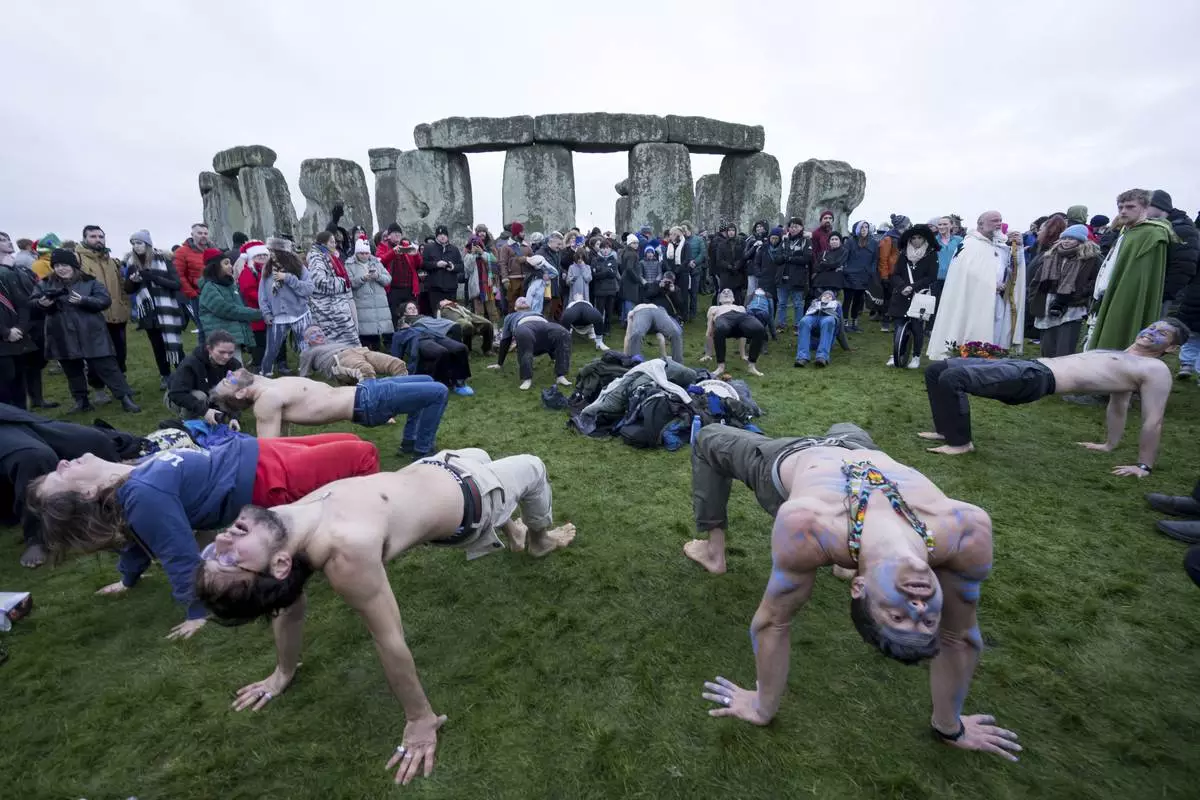SACRAMENTO, Calif. (AP) — California and Nevada voters will decide in November whether to ban forced prison labor by removing language from their state constitutions rooted in the legacy of chattel slavery.
The measures aim to protect incarcerated people from being forced to work under the threat of punishment in the states, where it is not uncommon for prisoners to be paid less than $1 an hour to fight fires, clean prison cells, make license plates or do yard work at cemeteries.
Nevada incarcerates about 10,000 people. All prisoners in the state are required to work or be in vocational training for 40 hours each week, unless they have a medical exemption. Some of them make as little as 35 cents hourly.
Voters will weigh the proposals during one of the most historic elections in modern history, said Jamilia Land, an advocate with the Abolish Slavery National Network who has spent years trying to get the California measure passed.
“California, as well as Nevada, has an opportunity to end legalized, constitutional slavery within our states, in its entirety, while at the same time we have the first Black woman running for president,” she said of Vice President Kamala Harris’ historic bid as the first Black and Asian American woman to earn a major party’s nomination for the nation’s highest office.
Several other states such as Colorado, Alabama and Tennessee have in recent years done away with exceptions for slavery and involuntary servitude, though the changes were not immediate. In Colorado — the first state to get rid of an exception for slavery from its constitution in 2018 — incarcerated people alleged in a lawsuit filed in 2022 against the corrections department that they had still been forced to work.
“What it did do — it created a constitutional right for a whole class of people that didn’t previously exist,” said Kamau Allen, a co-founder of the Abolish Slavery National Network who advocated for the Colorado measure.
Nevada's proposal aims to abolish from the constitution both slavery and involuntary servitude as punishment for crime. California’s constitution was changed in the 1970s to remove an exemption for slavery, but the involuntary servitude exception remains on the books.
Wildland firefighting is among the most sought-after prison work programs in Nevada. Those eligible for the program are paid around $24 per day.
“There are a lot of people who are incarcerated that want to do meaningful work. Now are they treated fairly? No,” said Chris Peterson, legal director at the American Civil Liberties Union of Nevada, which supports the measure. “They’re getting paid pennies on the hour, where other people get paid dollars, to do incredibly dangerous work.”
Peterson pointed to a state law that created a modified workers’ compensation program for incarcerated people who are injured on the job. Under that program, the amount awarded is based on the person’s average monthly wage when the injury occurred.
In 2016, Darrell White, an injured prison firefighter who filed a claim under the modified program, learned he would receive a monthly disability payment of “$22.30 for a daily rate of $0.50.” By then, White already had been freed from prison, but he was left unable to work for months while he recovered from surgery to repair his fractured finger, which required physical therapy.
White sued the state prison system and Division of Forestry, saying his disability payments should have been calculated based on the state’s minimum wage of $7.25 at the time. The case went all the way up to the Nevada Supreme Court, which rejected his appeal, saying it remained an “open question” whether Nevada prisoners were constitutionally entitled to minimum wage compensation.
“It should be obvious that it is patently unfair to pay Mr. White $0.50 per day,” his lawyer, Travis Barrick, wrote in the appeal, adding that White's needs while incarcerated were minimal compared to his needs after his release, including housing and utilities, food and transportation. “It is inconceivable that he could meet these needs on $0.50 per day.”
The California state Senate rejected a previous version of the proposal in 2022 after Democratic Gov. Gavin Newsom's administration cited concerns about the cost if the state had to start paying all prisoners the minimum wage.
Newsom signed a law earlier this year that would require the Department of Corrections and Rehabilitation to create a voluntary work program. The agency would set wages for people incarcerated in state prisons under the law. But the law would only take effect if voters approve the forced labor ban.
The law and accompanying measure will give incarcerated people more of an opportunity for rehabilitation through therapy or education instead of being forced to work, said California Assemblymember Lori Wilson, a Democrat representing Solano County who authored this year's proposal.
Wilson suffered from trauma growing up in a household with dysfunction and abuse, she said. She was able to work through her trauma by going to therapy. But her brother, who did not get the same help, instead ended up in prison, she said.
“It's just a tale of two stories of what happens when someone who has been traumatized, has anger issues and gets the rehabilitative work that they need to — what they could do with their life,” Wilson said.
Yannick Ortega, a formerly incarcerated woman who now works at an addiction recovery center in Fresno, California, was forced to work various jobs during the first half of her time serving 20 years in prison for a murder conviction, she said.
“When you are sentenced to prison, that is the punishment,” said Ortega, who later became a certified paralegal and substance abuse counselor by pursuing her education while working in prison. “You’re away from having the freedom to do anything on your own accord.”
Yamat reported from Las Vegas. Austin is a corps member for the Associated Press/Report for America Statehouse News Initiative. Report for America is a nonprofit national service program that places journalists in local newsrooms to report on undercovered issues. Follow Austin on Twitter: @ sophieadanna

FILE - Assemblyman Howard Watts speaks during the sixth day of the 31st Special Session of the Nevada Legislature in Carson City, Nev., July 14, 2020. (David Calvert/The Nevada Independent via AP, Pool, File)

FILE - An inmate selects the letters and numbers to be used to make a specialty license plate by Prison Industries at Folsom State Prison, May 15, 2012, in Folsom, Calif. (AP Photo/Rich Pedroncelli, File)

FILE - Steven Abujen, a California prison inmate with the Prison Industry Authority, cleans one of the newly installed headstones at the Mormon Island Relocation Cemetery, near Folsom, Calif., on Oct. 18, 2011. (AP Photo/Rich Pedroncelli, File)

















